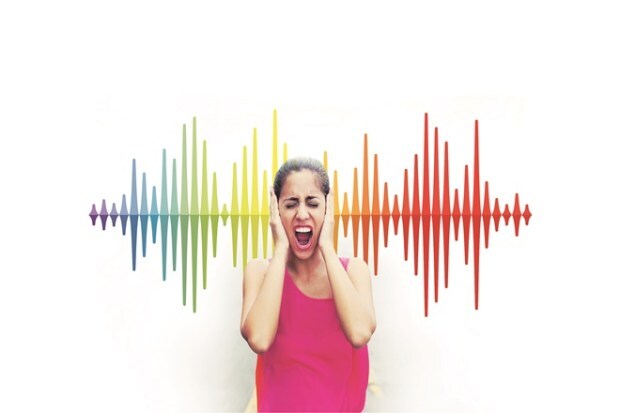By Ankur Biplav
Talk about pollution, the first thing that probably comes to our mind is air, water or plastic pollution. Not too many think about noise pollution that is now impacting people across the world.
In recent years, the detrimental effects of noise pollution on human health have become a cause for concern. From bustling urban areas to industrial zones and transportation hubs, the relentless onslaught of noise is taking its toll on human well-being.
A study conducted by the World Health Organization (WHO) highlights the various ways in which sound pollution negatively impacts human health. The report not only underscores the importance to recognise sound pollution as a significant public health concern, akin to other environmental pollutants such as air and water pollution, but also talks about how it impacts human health.
The most apparent and immediate effect of sound pollution is on hearing. Prolonged exposure to high-intensity noise levels can lead to hearing loss or impairment. However, the impact extends way beyond hearing alone.
Dr Jyoti Bala Sharma, director of neurology department at Fortis Hospital, Noida, says exposure to noise above 85 dBA (A-weighted decibels) intensity leads to many adverse effects ranging from interference with cognitive processing to damaging mental and physical health.

“Environmental noise exposure is thought to affect the brain and cognition due to its detrimental effects on the learning process,” says Dr Sharma, adding that noise also distracts attention from lessons or work.
“The effects of noise exposure include perceived disturbance, stress, frustration, annoyance, cognitive impairment, cardiovascular disorders and sleep disturbance,” Dr Sharma adds.
Not music to your ears
Due to noise, as per Dr Sameer Malhotra, director of mental health and behavioural sciences at Max Super Specialty Hospital, Saket, New Delhi, people can face issues like disturbance in concentration, irritability, frustration, sleep disturbance and headache.
Dr Malhotra further emphasises on how noise affects the sleeping pattern in a person and what effects it can have on the well-being. “Sleep is an important function of the mind. Disturbed sleep can predispose to mental distress and vice-versa. Mood disorders, depression, anxiety disorders, psychotic disorders, stress-related disorders and substance use disorders are all associated with sleep disturbances,” says Dr Malhotra. Lack of proper sleep also predisposes to psychiatric disorders, he adds.
Noise also has a significant impact on the brain affecting its overall functioning. Several studies have shown that noise disrupts the brain’s ability to process information efficiently, leading to reduced productivity and increased errors in tasks requiring cognitive focus.
Noise also acts as a stressor, triggering the body’s stress response system. When exposed to loud or persistent noise, the brain releases stress hormones like cortisol, which can have negative effects on mental as well as physical health.
Dr Sharma says, “Migraine is triggered by noise directly and indirectly by sleep disturbance. Constant exposure to loud noises can cause high-frequency sensorineural hearing loss.”
Excessive noise has also been found to have significant effects on the human heart and cardiovascular system. Exposure to chronic noise, particularly loud and persistent noise, has been associated with elevated blood pressure levels.
Dr Sharma says that constant exposure to noise keeps stress hormones like cortisol and adrenaline elevated. “This damages arteries and makes blood more viscous and increases the risk of heart attack and brain stroke,” she adds.
As per Dr Nishith Chandra, principal director, interventional cardiology, Fortis Escorts Heart Institute, New Delhi, prolonged activation of the body’s stress response due to noise pollution can contribute to the development and progression of cardiovascular conditions such as hypertension, atherosclerosis (hardening of the arteries), and an increased risk of heart attacks and strokes.
Certain populations, such as older adults or individuals with pre-existing heart conditions, tend to be more susceptible to the adverse effects of sound pollution on the heart. “As people age, their cardiovascular system may become less resilient and more prone to the negative impacts of excessive noise. Those with pre-existing heart conditions, such as coronary artery disease, arrhythmias, or heart failure, may experience exacerbated symptoms or increased cardiovascular events due to the added stress from noise pollution,” adds Dr Chandra.

Apart from affecting humans, noise also has a significant impact on animals both in terrestrial and aquatic environments. Many animal species rely on sound for communication, including mating calls, territorial signals, and warning signals. Studies have shown that excessive noise can disrupt the communication signals, making it challenging for animals to find mates, defend territories and detect predators.
Furthermore, noise pollution also disrupts animal habitats and alters their natural behaviours. Animals may avoid noisy areas, leading to habitat fragmentation and reduced access to resources such as food, water and shelter. Also, animals exposed to chronic noise can experience physiological stress responses similar to that seen in humans.
Take proper care
To stay safe from noise pollution and minimise its impact on well-being, Dr Sharma advises people to avoid going to places with high noise levels, keeping windows closed and using sound-proof walls. “Apart from these, ear plugs and noise cancellation earphones are another way which can help us in keeping excessive sound in check,” adds Dr Sharma.
Dr Chandra recommends using white noise machines or fans to create a soothing background sound that can help mask external noise. “Practise stress management techniques. Engage in activities that promote relaxation, such as meditation, deep breathing exercises, yoga or hobbies that help you unwind and reduce stress levels,” he adds.
It is also important to limit the volume and duration of exposure to loud music, when using personal audio devices. Similarly, maintaining a safe distance from noise-emitting sources such as heavy machinery, aircraft or traffic, wherever possible is also another way to minimise the ill effects of sound pollution.









